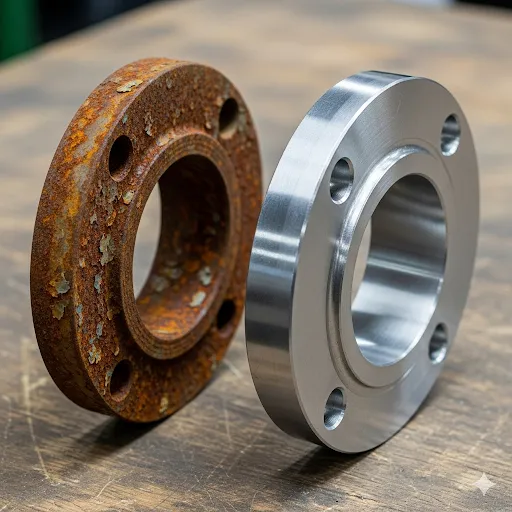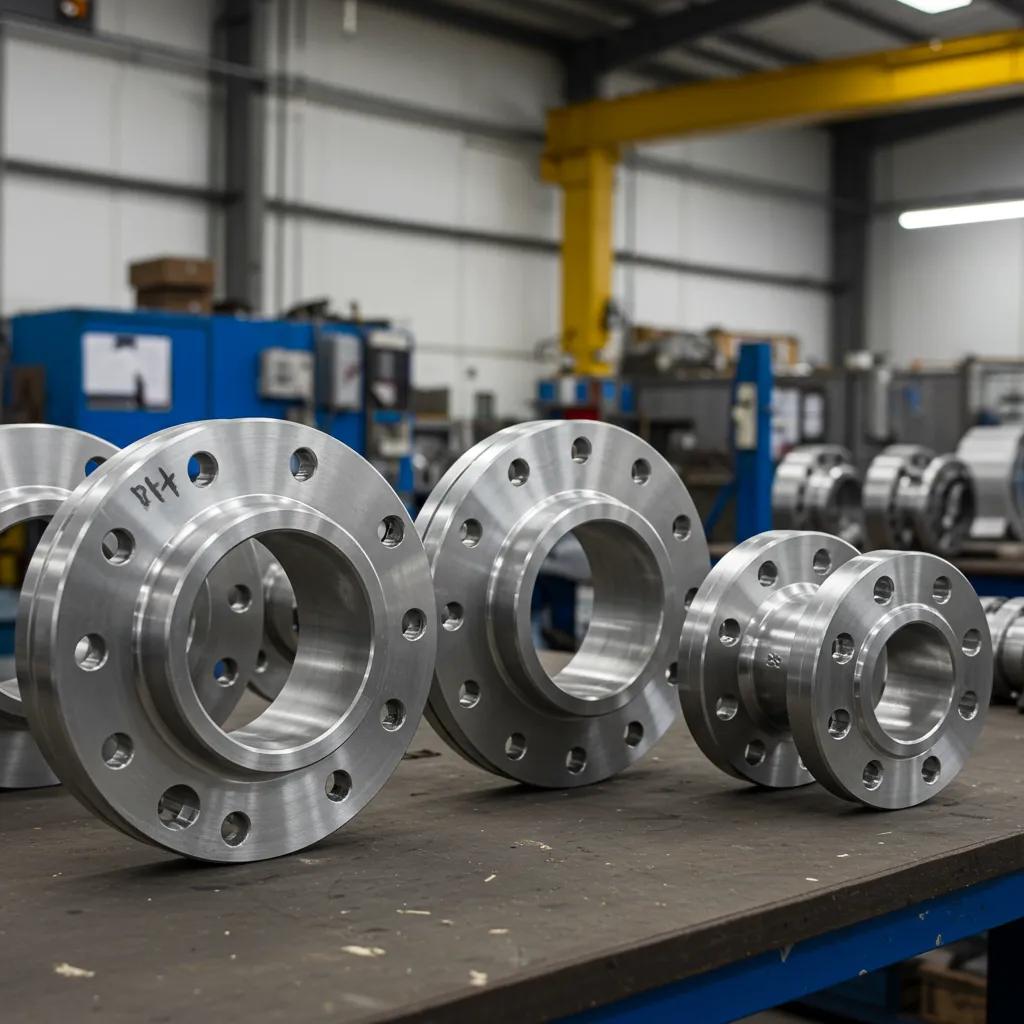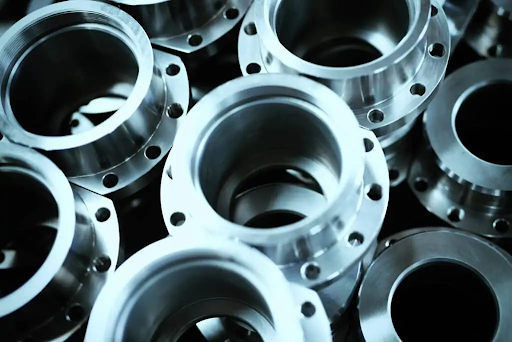Common Applications of Aluminum Flanges
Aluminum flanges are widely used in various industries due to their lightweight and corrosion-resistant properties. Common applications include the automotive, aerospace, and marine sectors, where strength-to-weight ratio is critical for performance and efficiency.
In the automotive industry, aluminum flanges are often utilized in engine components and exhaust systems, providing durability without adding excessive weight. Similarly, in aerospace applications, they help reduce overall aircraft weight while maintaining structural integrity, making them a preferred choice for manufacturers.
Advantages of Using Aluminum Flanges
Choosing aluminum flanges offers several advantages, including resistance to corrosion and lower weight compared to other materials like steel. These properties make them suitable for environments that require both strength and durability without the added mass.
Additionally, aluminum flanges are easier to handle and install, which can lead to reduced labor costs during assembly. Their resistance to oxidation ensures longevity, making them a cost-effective option in the long run for various piping systems.
Factors to Consider When Selecting Aluminum Flanges
When selecting aluminum flanges, it is essential to consider factors such as pressure rating, flange type, and compatibility with other materials. Understanding these elements ensures optimal performance and safety in piping systems.
For instance, the pressure rating of the flange must match the system's requirements to prevent leaks or failures. Moreover, the type of aluminum alloy used can affect the flange's performance in specific environments, so it's crucial to choose the right material for the intended application.
Maintenance Tips for Aluminum Flanges
Proper maintenance of aluminum flanges is essential to ensure their longevity and performance. Regular inspections and cleaning can prevent corrosion and buildup of debris, which could compromise their integrity over time.
Using non-abrasive cleaning agents and avoiding harsh chemicals will help maintain the surface finish of aluminum flanges. Additionally, applying protective coatings can extend their lifespan, especially in harsh environments where exposure to moisture and chemicals is common.






